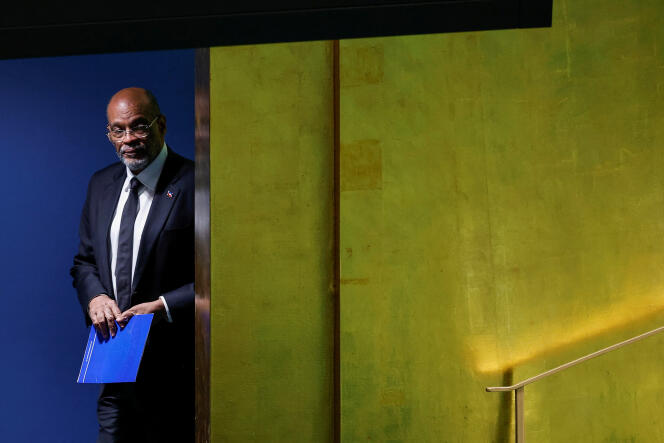


For months, Haitian Prime Minister Ariel Henry's government had been calling for the deployment of an international intervention force to combat armed gang violence in his country. On Monday, October 2, the United Nations Security Council voted in favor of a resolution tabled by the United States and Ecuador authorizing such an intervention. "The daily lives of the Haitian people are painful, which is why the Security Council (...) must act urgently to authorize the deployment of a multinational security support mission," declared Henry at the UN on September 22. According to a UN report, nearly 2,800 murders were recorded in Haiti between October 2022 and June 2023.
This multinational force – mainly composed of police but also military personnel – will be led by Kenya: Abandoning the people of Haiti is "out of the question", said Kenyan President William Ruto, referring to his Foreign and Diaspora affairs secretary's July declaration that "Kenya stands with persons of African descent across the world". Preparations for this mission are already well underway: a Kenyan delegation made an assessment trip to the Haitian capital in August, and Nairobi has announced that a thousand of its police officers, who are already taking French language courses, will be deployed. In exchange, Kenya has been promised $100 million (€95 million) in funding by the US to support the operation.
This Kenyan commitment to Haiti comes as something of a surprise, given that diplomatic relations between the two states had previously been very strained. The rapprochement between Port-au-Prince and Nairobi was made in haste – at the United States' urging – and while Ruto has been in search of recognition on the international scene. "It's exotic for Kenya to come to Haiti, and nobody wanted to go there," says Jean-Marie Théodat, lecturer at the University of Paris-I-Panthéon-Sorbonne.
The painful history of previous UN interventions in Haiti – marred by massacres, sexual violence and the spread of a cholera epidemic – and the population's rejection of American interference have prompted Washington to come up with a new model: a multinational force, led by an African country, in which "ten to twelve countries" (notably including Jamaica, the Bahamas and Antigua and Barbuda) will participate, according to Victoria Nuland, US Under Secretary of State for Political Affairs, with logistical, financial and medical support from the USA. The force will be operational in January 2024, according to Kenyan government sources.
You have 55.96% of this article left to read. The rest is for subscribers only.
